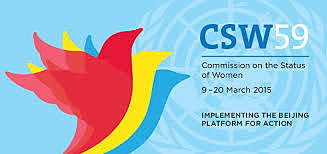This prompted me to write to both my MP and the MP of a friend of mine who would be drastically effected by the proposals, specifically about the move to prohibit part-time working and force non-EU students to leave as soon as their course ends. I have copied what I wrote to them below adapted to be used by anybody, and I ask you to also use some or all of what I have written to send a message to your own MP. You can find your MP here.
-----------------------
Dear Madam/Sir,
I am writing to you to voice my concern regarding the proposed changes to student visas for those outside of the EU and the implications this will have.
There is a PhD student at the University of York and is originally from the USA. His thesis investigates the royal progresses of Queen Elizabeth I and through his hard work examining archive materials he has made unique historical discoveries about this period of British history. He is part way through his research, yet already knows that his heart belongs to the UK and this is where he would like to remain and work once he has completed his PhD. He is also a superb teaching, inspiring undergraduates at York as to the value and pleasure to be gained from History!
Yet this is all put in jeopardy by the proposed measures. Teaching is a vital part of the PhD process - it trains the educators of the future, its a vital career skill and one that helps to disseminate innovative research findings to new audiences. By not letting non-EU students undertake paid employment during their studies you would deprive them of this vital career skill, and a vital mechanism by which they can earn enough money to live on in order to continue research that benefits the UK - culturally and economically. Nobody benefits from such legislation.
Insisting that non-EU students leave at the end of their course also a ludicrous measure. For one, when do you deem the end of a PhD students course? It is not a clean cut process - there is a hand-in, the Viva defence and the process of tidying up any research we might be undertaking in partnership with others. By essentially deporting and then allowing re-entry once a suitable job has been found will only harm your immigration statistic too, surely? But also, you are insisting that having been in the UK for over 4 years, that in that time a student will not have made the UK their home. Being in the country where one has developed years worth of personal and professional ties is often essential to successfully building a career in academia, especially building upon existing research. Surely having cultivated a world-leading researcher in their field, the UK would want to benefit from and support their ongoing career?
Within universities across the country, a significant proportion of the staff and students come from overseas originally. They bring with them different perspectives, different experiences and wealth of knowledge that makes the UK research environment so rich.
I believe that these proposed immigration policies will make the UK a less appealing place for immigrants - but your party seem to have missed the point. It will make the UK a less appealing place for the most brilliant and resourceful people in the world to undertake innovative research and education. Please do not play to the xenophobic rhetoric. Nobody benefits from such legislation.
Yours sincerely,

